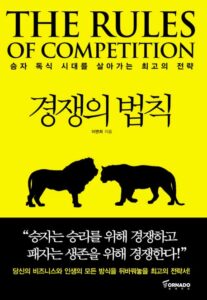
-
Major Wars and Military Conflicts on the Korean Peninsula
Read in Korean Characteristics and Overview of Wars on the Korean Peninsula The wars that occurred on the Korean Peninsula have unique characteristics distinct from those in Europe or other parts of Asia. While some similarities exist, the defining feature of wars in Korea is that they were predominantly defensive rather than offensive. Unlike many…
-
한반도의 주요 전쟁 및 군사적 충돌: 연대표
Read in English 한반도에서 일어난 전쟁의 특성과 개요 한반도에서 발생한 전쟁은 유럽이나 다른 아시아 지역의 전쟁과는 다른 독특한 특징을 가지고 있다. 일부 유사한 점도 존재하지만, 한반도의 전쟁은 대체로 방어적인 성격을 띠었으며, 다른 나라를 침략하거나 정복하려는 목적의 전쟁은 거의 없었다. 한반도의 전쟁사는 크게 두 시기로 나눌 수 있다. 삼국통일 이전의 전쟁 – 한민족의 형성과 관련된 공방전이…
-
The Five Thieves
Read in Korean Explore the Table of Contents Qin state Chancellor Lü Buwei, who was both a prominent merchant and a politician active during the late period of China’s Warring States era, instructed over two thousand guests residing in his house to record what they saw and heard. The book that was thus compiled was titled…
-
Humans who want to be rational
Read in Korean Explore the Table of Contents “no one but myself can be blamed for my fall. I have been my own greatest enemy-the cause of my own disastrous fate”― Napoléon Bonaparte On December 2, 1804, Napoleon Bonaparte ascended to become Napoleon I, the first emperor of the Bonaparte dynasty in France. Then, on December 2,…
-
I only fight as it goes
Read in Korean Explore the Table of Contents A philosopher poured a handful of beads onto a tray he held. The beads rolled noisily, bumping and tumbling around until they quieted down after a while. Then the philosopher spoke, “the beads rolling around the tray as they please is fate (運命), them stopping abruptly at the…
-
I rear a 600,000-strong army within me
Read in Korean Explore the Table of Contents The historical significance of the Opium Wars waged by China and Britain on Chinese territory is by no means insignificant. However, the battles over two phases ultimately ended in China’s humiliating defeat. In terms of science, technology, culture, and wealth, the West was unparalleled by the East. Even…
-
Combine both conventional and unexpected strategies to achieve victory!
Read in Korean Explore the Table of Contents Imagination is competitiveness. All wars are fought with tradition and won with innovation. – Sun Tzu The movie “Kingdom of Heaven (2005)” is set against the backdrop of Jerusalem at the end of the Second Crusade. As is well known, the Crusades were a fight between Christian and…
-
Strong individuals may be many, but there is only one strong team.
Read in Korean Explore the Table of Contents The Mongol Empire, which emerged as the dominant power on the steppe, launched three major military campaigns over a period of approximately forty years, from 1219 to 1260. Genghis Khan, who razed the capital of the flourishing Khwarezm Empire in just three days across Iran, Afghanistan, and Uzbekistan,…